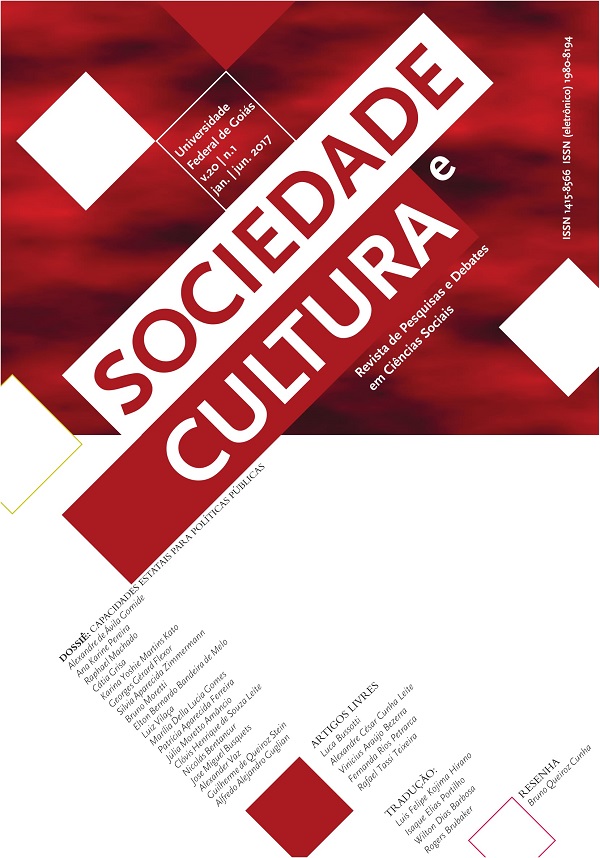Políticas públicas e linguagem: o papel das definições oficiais para a construção das capacidades estatais
DOI:
https://doi.org/10.5216/sec.v20i1.50854Abstract
O objetivo deste trabalho, de natureza teórica e metodológica, é demonstrar que a abordagem das capacidades estatais deve apreender o campo burocrático também em sua dimensão simbólica. Considera-se que os atos de Estado, segundo a teoria de Pierre Bourdieu, constroem princípios de visão e divisão universalmente reconhecidos, produzindo efeitos sobre a realidade social. Será mostrado que os agentes estatais concentram poder simbólico pelo qual elaboram a linguagem da ordem pública e produzem proposições universais que definem, em interação com outros agentes, um espaço de possíveis para as políticas públicas, com instrumentos que só existem baseados num corpo de definições reconhecidas do interesse comum. Conclui-se que as capacidades estatais dependem da distribuição de poderes entre os agentes para criar definições legítimas, articulando séries de representações sociais e instrumentos de ação socialmente autorizados como práticas públicas.Downloads
Download data is not yet available.
Downloads
Published
2017-12-26
How to Cite
MORETTI, Bruno; BERNARDO BANDEIRA DE MELO, Elton. Políticas públicas e linguagem: o papel das definições oficiais para a construção das capacidades estatais. Sociedade e Cultura, Goiânia, v. 20, n. 1, 2017. DOI: 10.5216/sec.v20i1.50854. Disponível em: https://revistas.ufg.br/fcs/article/view/50854. Acesso em: 14 feb. 2026.
Issue
Section
Thematic Dossier
License
Authors who publish in this journal agree to the following terms:
- Authors retain the copyright and grant the journal the right of first publication, the work being simultaneously licensed under the Creative Commons Attribution License, which allows the sharing of the work with acknowledgment of authorship and of the initial publication in this journal;
- Authors are authorized to enter into additional contracts separately, for non-exclusive distribution of the version of the work published in this journal (eg, publishing in an institutional repository or as a book chapter), with acknowledgment of authorship and of the initial publication in this journal;
- Authors are allowed and encouraged to post and distribute their work online (eg, in institutional repositories or on their personal page) at any point before or during the editorial process, as this can bring productive change as well as increases the impact and the citation of the published work (see O Efeito do Acesso Livre).



